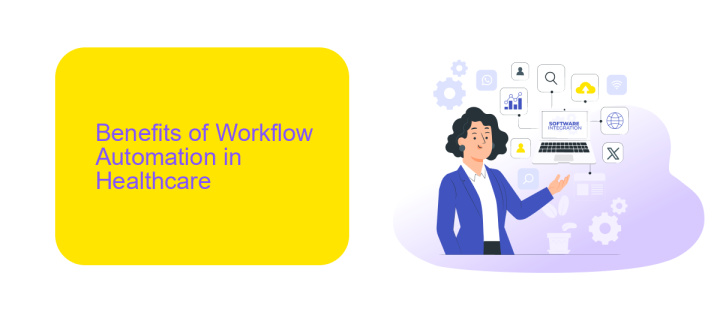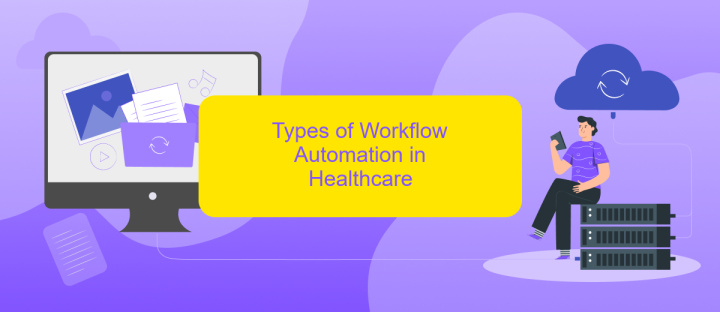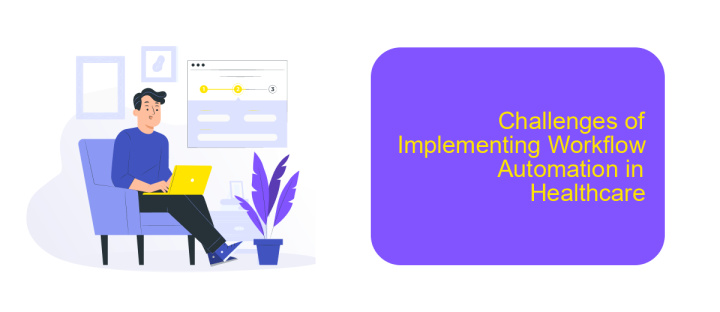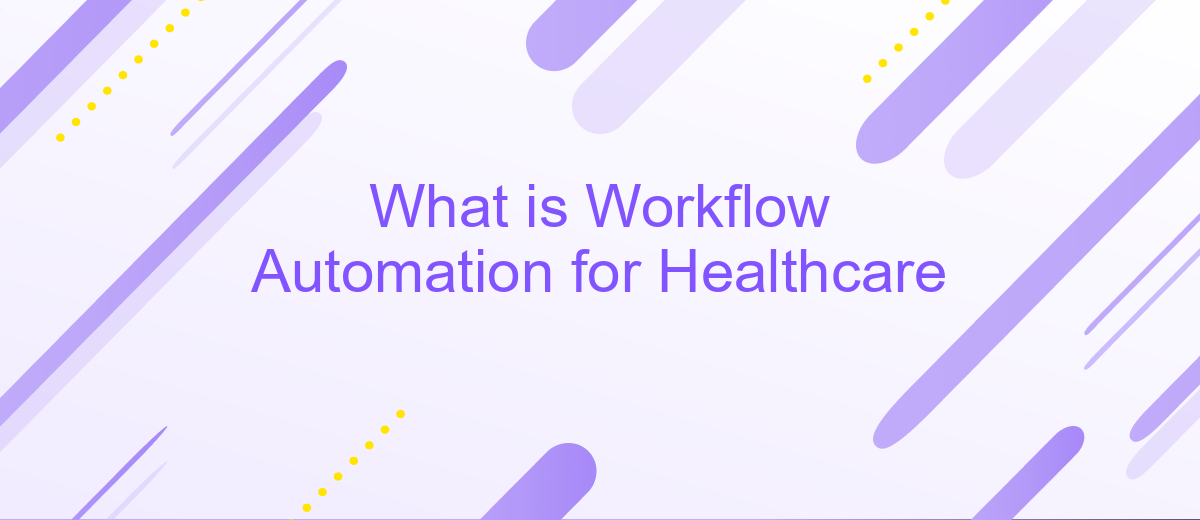What is Workflow Automation for Healthcare
Workflow automation in healthcare refers to the use of technology to streamline and optimize routine tasks and processes within medical facilities. By automating administrative duties, patient management, and data handling, healthcare providers can improve efficiency, reduce errors, and enhance patient care. This article explores the benefits, applications, and future potential of workflow automation in the healthcare sector.
Introduction
Workflow automation in healthcare is revolutionizing the way medical institutions operate, enhancing efficiency, and improving patient care. By automating repetitive tasks and streamlining complex processes, healthcare providers can focus more on patient outcomes and less on administrative burdens.
- Reduced administrative workload
- Improved patient data management
- Enhanced coordination among healthcare teams
- Increased accuracy in medical records
One of the pivotal tools in achieving seamless workflow automation is the integration of various healthcare systems. Services like ApiX-Drive facilitate these integrations by connecting different applications and automating data transfer between them. This not only saves time but also ensures that critical patient information is always up-to-date and easily accessible. As a result, healthcare providers can deliver more personalized and efficient care to their patients.
Benefits of Workflow Automation in Healthcare

Workflow automation in healthcare significantly enhances operational efficiency by streamlining repetitive tasks and reducing human error. By automating administrative processes such as patient scheduling, billing, and data entry, healthcare providers can focus more on patient care rather than paperwork. This not only improves the accuracy and speed of these tasks but also reduces the workload on healthcare staff, leading to better job satisfaction and lower burnout rates.
Additionally, integrating various healthcare systems through services like ApiX-Drive can further optimize workflow automation. ApiX-Drive enables seamless data transfer between different platforms, ensuring that patient information is consistently updated and accessible across all departments. This integration minimizes data silos and enhances coordination among healthcare teams, ultimately leading to improved patient outcomes and more efficient use of resources. By leveraging workflow automation and integration tools, healthcare providers can deliver higher quality care while maintaining operational excellence.
Types of Workflow Automation in Healthcare

Workflow automation in healthcare encompasses various types of processes aimed at enhancing efficiency and reducing manual tasks. These automated workflows can significantly improve patient care, administrative tasks, and overall operational efficiency.
- Patient Scheduling: Automating the scheduling process can reduce the time and effort required to book appointments, send reminders, and manage cancellations.
- Electronic Health Records (EHR): Automation in EHR management ensures that patient data is accurately recorded, easily accessible, and securely stored, reducing the risk of errors.
- Billing and Claims Processing: Automated billing systems streamline the process of generating invoices, processing payments, and handling insurance claims, minimizing delays and errors.
- Integration of Systems: Tools like ApiX-Drive facilitate the integration of various healthcare systems, ensuring seamless data flow and communication between different platforms.
- Prescription Management: Automating prescription orders and refills reduces the burden on healthcare providers and ensures timely medication delivery to patients.
By implementing these types of workflow automation, healthcare providers can focus more on patient care and less on administrative burdens. This not only improves efficiency but also enhances the overall patient experience.
Challenges of Implementing Workflow Automation in Healthcare

Implementing workflow automation in healthcare presents several challenges that can hinder its successful adoption. One of the primary obstacles is the complexity of healthcare processes, which often involve multiple departments and intricate workflows. Ensuring that automation tools can seamlessly integrate with existing systems and workflows is crucial but can be technically demanding.
Another significant challenge is data security and privacy. Healthcare organizations handle sensitive patient information, and any automation solution must comply with stringent regulations such as HIPAA. Ensuring that automated systems are secure and that patient data is protected is paramount.
- Integration with existing systems
- Data security and compliance
- High initial costs
- Staff training and resistance to change
Despite these challenges, services like ApiX-Drive can facilitate smoother integration by providing robust tools for connecting various healthcare applications. By addressing integration and data security concerns, these services help healthcare organizations overcome some of the hurdles associated with workflow automation.
Future of Workflow Automation in Healthcare
The future of workflow automation in healthcare is set to revolutionize patient care and operational efficiency. With advancements in artificial intelligence and machine learning, healthcare providers can expect more accurate diagnostics and personalized treatment plans. Automation will streamline administrative tasks such as scheduling, billing, and patient record management, reducing the burden on healthcare staff and allowing them to focus more on patient care. Telemedicine and remote monitoring will become more integrated, providing real-time data to healthcare professionals and improving patient outcomes.
Integration of various healthcare systems will be crucial for seamless workflow automation. Services like ApiX-Drive will play a significant role by enabling easy and efficient integration of different platforms and applications. This will ensure that data flows smoothly between systems, enhancing interoperability and reducing errors. As regulatory frameworks evolve to support these technologies, the adoption of workflow automation in healthcare will accelerate, leading to a more efficient, effective, and patient-centric healthcare system.
FAQ
What is Workflow Automation for Healthcare?
How can workflow automation benefit healthcare providers?
What are some common tasks that can be automated in healthcare?
How do I implement workflow automation in my healthcare practice?
Is workflow automation secure for handling patient data?
Strive to take your business to the next level, achieve your goals faster and more efficiently? Apix-Drive is your reliable assistant for these tasks. An online service and application connector will help you automate key business processes and get rid of the routine. You and your employees will free up time for important core tasks. Try Apix-Drive features for free to see the effectiveness of the online connector for yourself.

